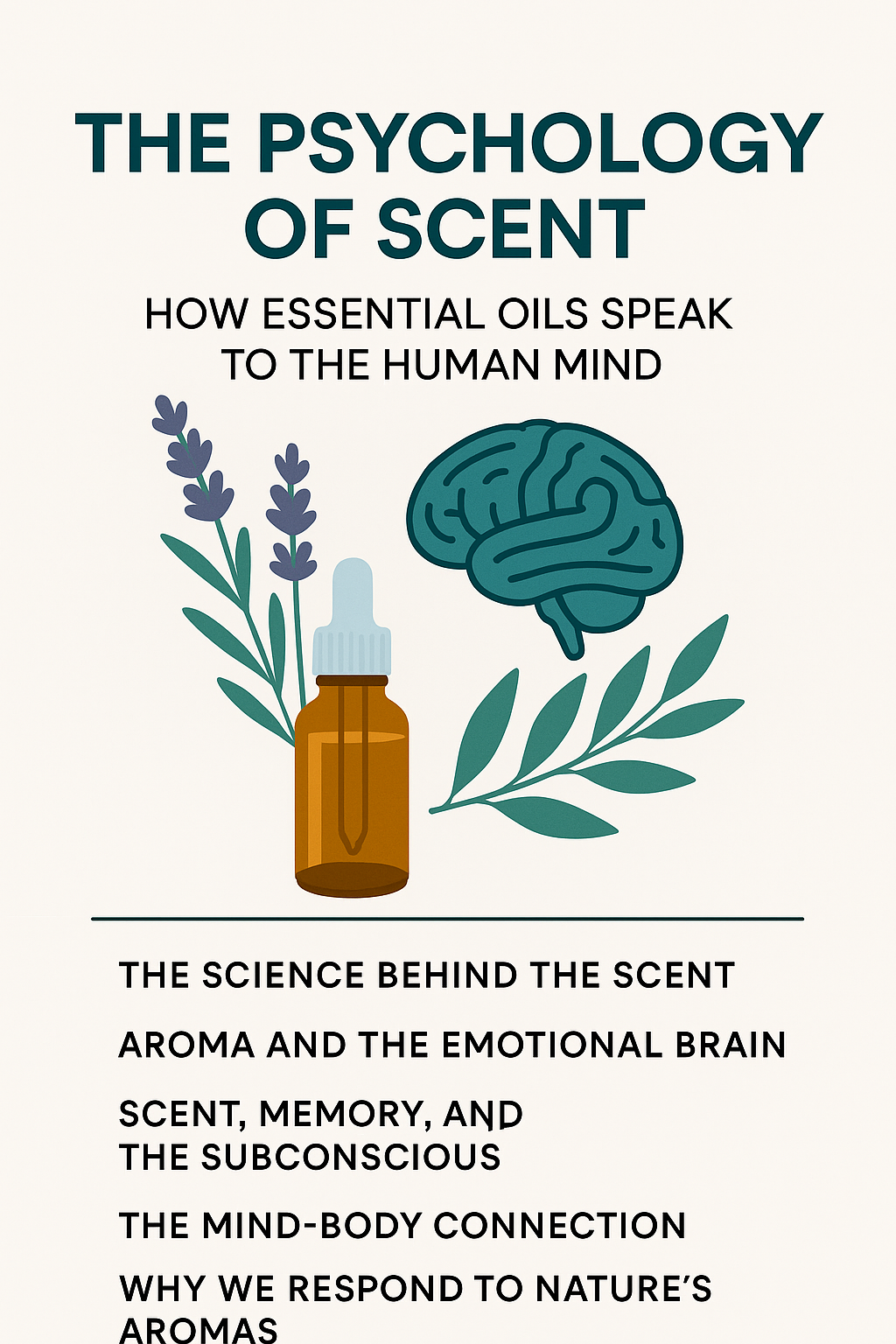
The Psychology of Scent: How Essential Oils Speak to the Human Mind
Share
Introduction
Have you ever noticed how a single drop of lavender oil can calm your thoughts, or how a whiff of citrus instantly brightens your mood?
At Natroil, we believe scent is more than a fragrance — it’s a language of nature that speaks directly to the human spirit.
Each essential oil carries its own emotional frequency, capable of transforming the atmosphere and how we feel within it. Let’s explore how this ancient sense connects body, mind, and memory.
1. The Science Behind the Scent
When you inhale an essential oil, tiny aroma molecules travel through your nose to the olfactory bulb — a part of your brain that connects directly to the limbic system, the emotional centre responsible for instinct, mood, and memory.
This means that scent bypasses logic entirely and reaches emotion almost instantly.
It’s why the smell of frankincense might evoke calm reflection, or why the scent of rose can stir feelings of comfort and nostalgia.
In simple terms: you don’t just smell an essential oil — you feel it.
2. Aroma and the Emotional Brain
Each essential oil is a complex symphony of natural compounds — terpenes, esters, aldehydes — each interacting with the nervous system in unique ways.
- Lavender (Linalool): Calms the mind and reduces anxiety.
- Bergamot & Lemon (Limonene): Lift mood and dispel tension.
- Peppermint (Menthol): Enhances clarity and alertness.
- Frankincense (α-Pinene): Promotes grounding and reflection.
- Ylang Ylang (Germacrene): Encourages joy and sensual balance.
These are not just pleasant scents; they are neurochemical signals that help the brain find emotional balance.
3. Scent, Memory, and the Subconscious
The connection between scent and memory is powerful and deeply personal.
A single aroma can transport us to a forgotten moment — a childhood garden, a sacred ceremony, or a loved one’s embrace.
This is because the limbic system stores scent and memory together.
Every fragrance becomes a story, and every bottle carries emotion.
Every aroma carries a memory. Every bottle tells a story.
4. The Mind–Body Connection
Essential oils influence not just how we feel, but how our bodies respond.
- Relaxing aromas like chamomile and vetiver can slow breathing and heart rate.
- Energising scents like rosemary or peppermint awaken the senses.
- Grounding resins like sandalwood and frankincense foster mindfulness and stability.
In this way, aromatherapy becomes a bridge — aligning the physical, emotional, and spiritual self through nature’s chemistry.
5. Why We Respond to Nature’s Aromas
For thousands of years, humans have lived in harmony with the scents of wood, resin, leaf, and flower.
Even today, our subconscious recognises these aromas as signals of safety, purity, and renewal.
When we breathe in a natural essential oil, we’re not only enjoying its fragrance — we’re reconnecting with something ancient, something profoundly human.
✨ In Essence
Essential oils are emotional messengers.
They don’t just perfume the air — they awaken memory, emotion, and presence.
Through scent, nature still speaks to us.
And at Natroil, we listen.
🌸 Explore Natroil’s Collection
Discover the essential oils that speak to your soul — from grounding woods to bright citrus notes, each crafted to enhance mood, memory, and wellbeing.
